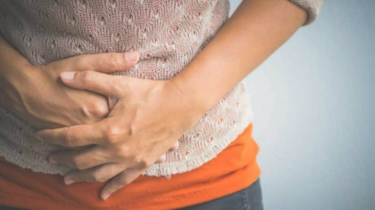
Know your risk
Some types of ovarian cancer seem to run in families. If a woman in your family has had ovarian or breast cancer, make sure your doctor knows. Other things that seem to make a woman more likely to develop ovarian cancer are:
- Age: Ovarian cancer is most often found after menopause, in women 63 or older. It is relatively rare in women under 40.
- Weight: Women who are obese are at greater risk.
- Reproductive history: Your risk is higher if you:
- Started having your period before you were 12.
- Went through menopause after 50.
- Never had a full-term pregnancy, or if you started having children after age 35.
- Took certain medicines to help you get pregnant.
- Used hormone therapy during menopause.
- Your risk is lower if you:
- Had a full-term pregnancy before you were 26.
- Have had babies. Every full-term pregnancy lowers your risk.
- Breastfed your babies.
- Took certain birth control medicines.
Early treatment can save your life.
Right now there aren’t any good screening tests for ovarian cancer. It can cause symptoms even in the early stages, but the same symptoms can often be caused by other, less serious problems. The difference is that they:
- Start suddenly.
- Feel different than normal digestive or menstrual problems.
- Happen almost every day and don’t go away.
If you have any of the following symptoms almost daily for more than two or three weeks, make an appointment with your primary care physician or gynecologist right away. The sooner a diagnosis is made, the better your chances.
- Bloating
- Pain in your pelvis or belly
- Trouble eating or feeling full quickly
- Feeling an urgent need to urinate or needing to go more often
Other symptoms can include fatigue, indigestion, back pain, constipation, pain during sex and changes in your
menstrual cycle.
**Did you know: The more periods a woman has, the more likely she is to develop ovarian cancer. Women who started their periods before age 12, started menopause after 50, never had babies and didn’t breastfeed are at a higher risk.
Recent Posts
The U.S. Department of Labor Announces Proposed Rule To Protect Indoor, Outdoor Workers From Extreme Heat
The U.S. Department of Labor has proposed a new rule aimed at protecting workers from extreme heat hazards. This initiative seeks to safeguard approximately 36 [...]
Supreme Court Overturns Chevron Deference: What It Means for Workplace Safety and Regulation
The landscape of federal regulation is set for a seismic shift following a recent Supreme Court decision. On June 28, in Loper Bright Enterprises, et [...]
Navigating the Compliance Maze: How NARFA Simplifies Employee Benefits for Automotive and Trade Industries
In today's complex regulatory environment, businesses in the automotive, roads, fuel, and related industries face unprecedented challenges in managing employee benefits. Recent studies show that [...]



